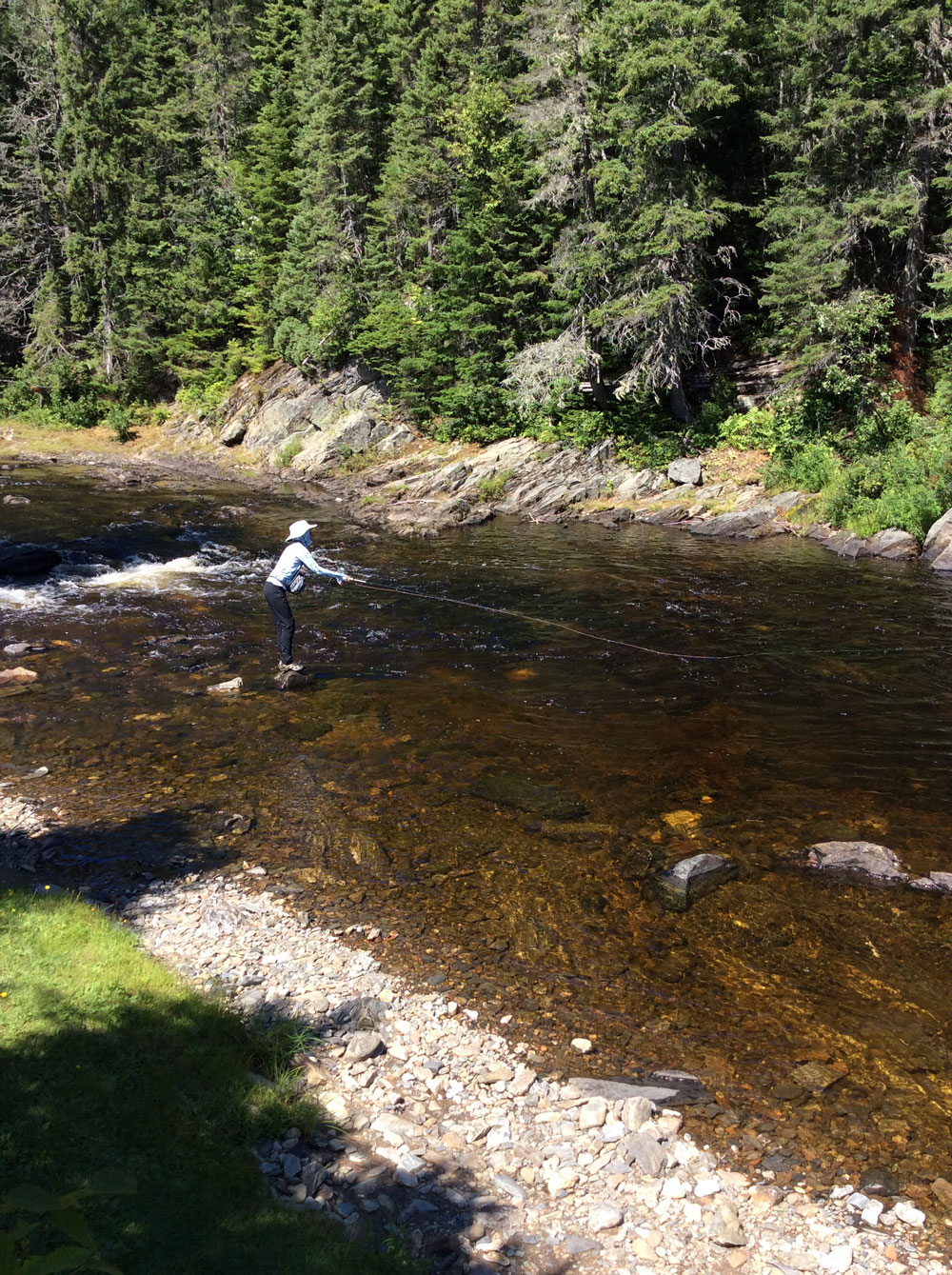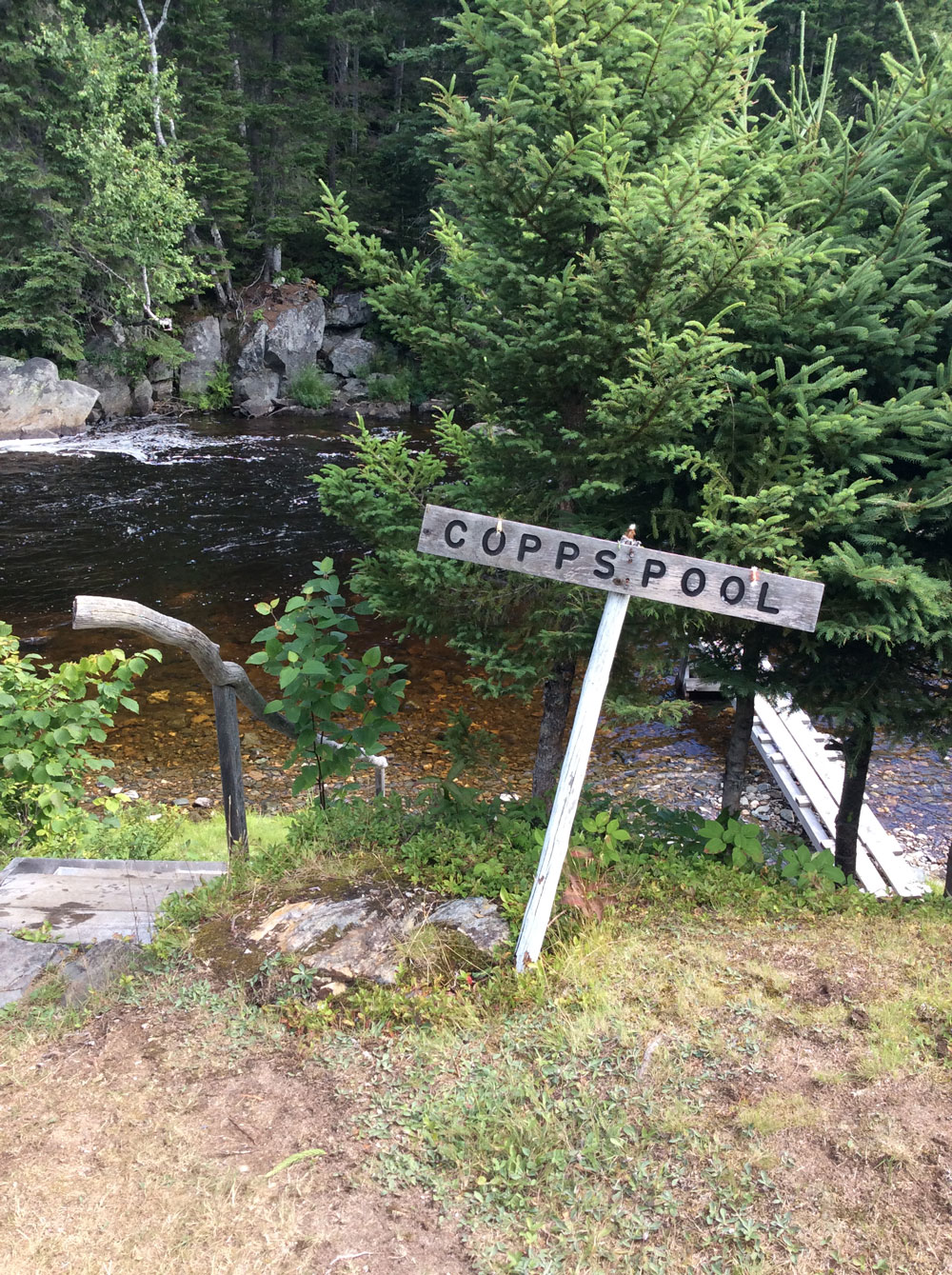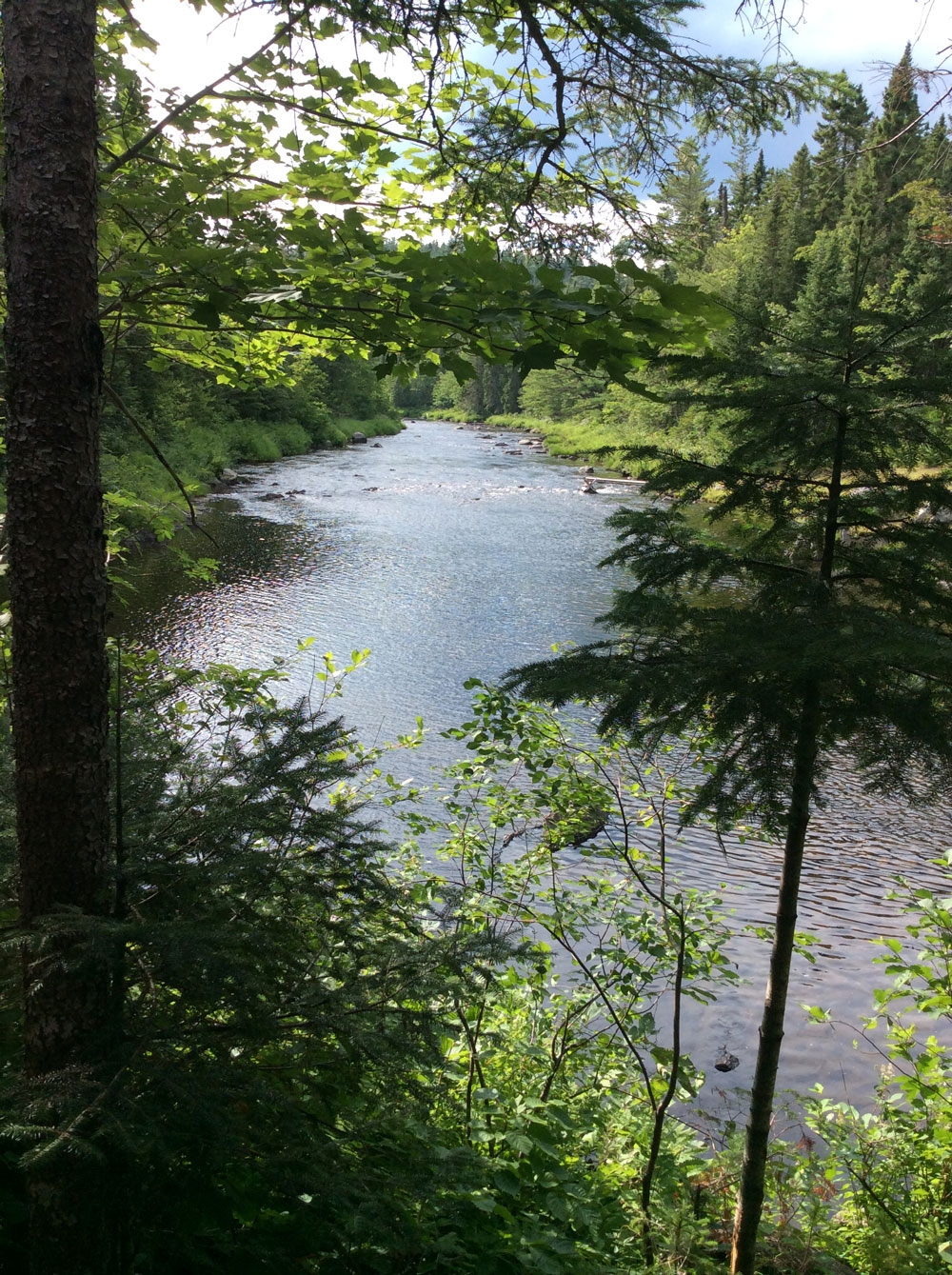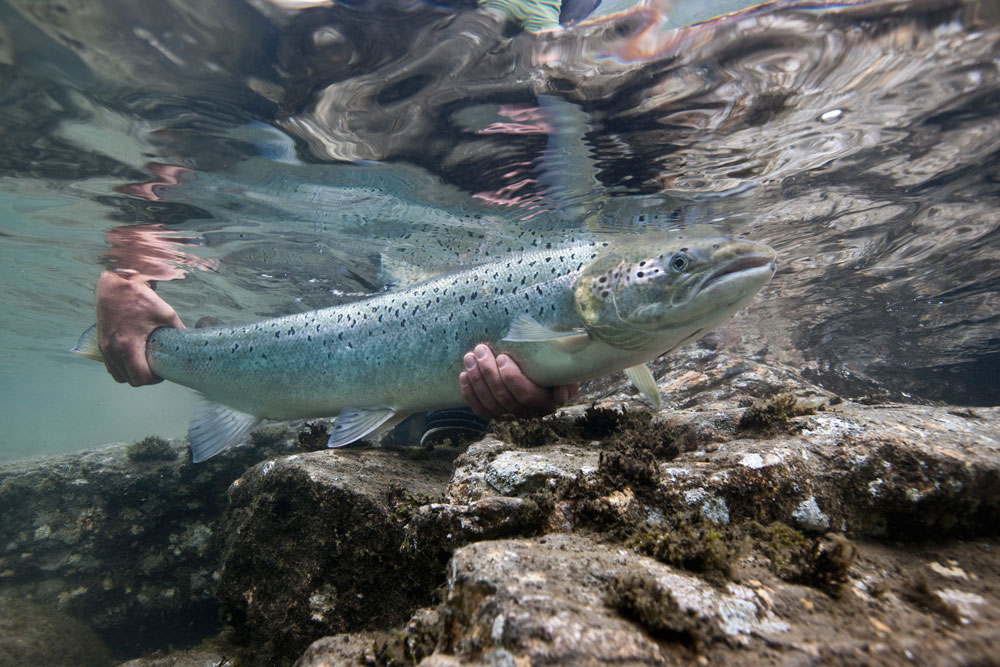No one knows why an Atlantic salmon strikes a fly. They are in freshwater and their digestive systems have shut down. Still they strike—perhaps out of habit or memory or aggression or annoyance—but they do strike, if only rarely. And when an Atlantic salmon does strike, it is worth the wait, for you have suddenly hooked up with a freight train—and an irritated one at that.
This season we booked for the first eight days of August on the Northwest Miramichi. Four days in Dam Camp followed by four days in Adams. Dam Camp has a rough, rocky personality. It is hard walking, and the pools are surrounded by cliffs. Adams Camp is gentler, with easier walking and few cliffs. Both hold salmon.

Atlantic salmon are hard enough to land on fly tackle, but when the water’s as low as this? Forget about it. (Photo: Robert Sohrweide)
But, and it is a big but, the salmon in the pools have been there for weeks. The rainstorms that passed through Maine missed New Brunswick, and the river and its pools are very low. The word “drought” is whispered. The fish in the pools are no longer bright and silver from the sea; they have turned greenish brown from their many days in the river.
On our arrival at Dam Camp, the guides told us that only three out of its eight pools were fishable because of the low water. One of my favorite spots—Black Pool Run—only had inches of water in it. The deep slits in the rock—Home Pool and Black Pool—held cold water and salmon. Unfortunately there were only three of them.
Bright, sunny days, high temperatures, low water, and no rain in the forecast. Terrible conditions. But, and again, this is a big but, any kind of fishing is better than no fishing. We fished. We changed flies. We cast wet and dry. We, as one of my friends said, “beat the water.”
The pools cooled overnight and stayed cool until the sun—no clouds yet—hit the water at 10 a.m. All of us continued fishing for another hour as the temperature rose. Then we waited. Even if we did hook a fish in the afternoon, the fight in those conditions would have finished him, and we did not want that. Catch and release. Live fish. We cast our lines again at dusk and finished in the dark.

There were eight pools to choose from at the author’s salmon destination, but low water had closed five of them when he arrived. (Photo: Robert Sohrweide)
Our last day at Dam the thermometer read 100 degrees at 3 p.m. Thankfully, the authorities did not close the river, and thankfully, the temperature dropped enough at night that they kept the rivers open. Blessed Canada!
Three of us had worked hard for four days and caught two fish—so, 2,000 casts? The next day we moved upstream to Adams Camp and hoped that the change in venue would change our luck. Still cloudless and hot, but Rob landed a salmon that day while fishing the shady lower pools. Everyone celebrated.
That evening it rained a good, soaking, 12-hour rain. We looked out the next morning to a five-inch “bump” in the water. And there was cloud cover.
Now we really celebrated. Seven of Adams Camp’s eight pools had just become fishable. At last we had the water and the weather and the salmon and the skills. Now, did we have the luck to go with that?
We did. Both Martha and Bill, a couple of friends who had just arrived, connected that day. Martha landed a ten-pound salmon on a green machine; Bill a grilse on a green bomber. Notice the color of those flies? I certainly did.
In the morning I fished Copps Pool with Steven, my guide. We started with a green machine—cast and drift; another foot of line, cast and drift; repeat. At the very far end of the pool I felt a take and set the hook. A small salmon erupted out of the water.

A last-minute rain shower brought the river up five inches and saved the author’s salmon trip. (Photo: Robert Sohrweide)
I remembered to bow to the salmon, thus providing some slack, and yelled, “Fish on.”
Steven came running from the point where he was covering both another of my friends and me. He saw the fish leave the water again as he arrived.
“Oh, that’s a nice one, Bob. Let him run.”
Four bows later the fish was still running.
“He’s a feisty one,” Steven said.
Once more I bowed as he danced on his tail.
“Yep,” I said grinning wildly, “feisty!”
I had gotten some yards of line back on my reel, but now I watched as the fish took my gain back again. Not silver from the sea, but dark from the river; he’d been inland a while, was well-rested and ready to play.
Which we did, for 15 minutes until I brought him near enough for Steven to net. After eight jumps and a hard fight, we released him, still swimming well. An estimated seven pounds. A small, feisty, hard-running and high-jumping Atlantic salmon.
Worth the wait? You bet!

